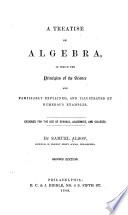 | Samuel Alsop - Algebra - 1848 - 336 pages
...middle term, if the number of terms is 'odd. 59. This being the case, the sum of the series must be equal to the sum of the extremes multiplied by half the number of terms. So that if S represent the sum of the series, a being the first, and / the last term, we shall have... | |
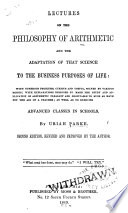 | Uriah Parke - Arithmetic - 1849 - 414 pages
...one extreme gives the other. PROPOSITION 40. In any series of numbers in Arithmetical Progression, the sum of the extremes multiplied by half the number of terms, will be the sum of the series. This may be illustrated by annexing a descending arithmetical series... | |
 | Uriah Parke - Arithmetic - 1850 - 402 pages
...one extreme gives the other. PROPOSITION 40. In any series of numbers in .Arithmetical Progression, the sum of the extremes multiplied by half the number of terms, will be the sum of the series. This may be illustrated by annexing a descending arithmetical series... | |
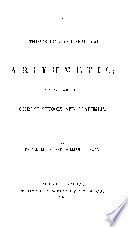 | Daniel Leach - Arithmetic - 1851 - 280 pages
...any series are written under each other, reversing the order, it will be seen that the sum of all the terms is equal to the sum of the extremes multiplied by half of the number of terms. Thus, 2 4 6 8 10 12 14 16 18 18 16 14 12 10 8 6 4 2 20 20 20 20 20 20 20 20... | |
 | Sarah Porter - Arithmetic - 1852 - 286 pages
...the middle term is equal to half the sum of any of these pairs, it follows that the sum of the whole number of terms is equal to the sum of the extremes multiplied by half the number of terms : thus, Q the sum of the first series is 1 + 15 x 2 ~ 16x4 = 64, 5 and the sum of the second series... | |
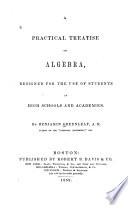 | Benjamin Greenleaf - Algebra - 1852 - 348 pages
...-f-2=6a-|-15(Z the sum of either series. Therefore, in all cases, we find that the sum of the series is equal to the sum of the extremes multiplied by half the number of terms ; or, the number of terms multiplied by half the sum of the extremes. If, therefore, the sum of any... | |
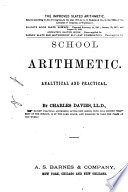 | Charles Davies - 1852 - 344 pages
...and 19 taken as many times as there are terms ; and the given series is equal to half this sum, or to the sum of the extremes multiplied by half the number of terms. RULE. — Add the extremes together and multiply their sum by half the number of terms ; the product... | |
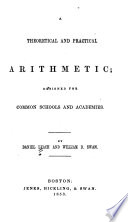 | Daniel Leach - Arithmetic - 1853 - 622 pages
...any series are written under each other, reversing the order, it will be seen that the sum of all the terms is equal to the sum of the extremes multiplied by half of the number of terms. Thus, 2 4 6 8 10 12 14 16 18 18 16 14 12 10 8 6 4 2 20 20 20 20 20 20 20 20... | |
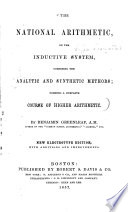 | Benjamin Greenleaf - Arithmetic - 1857 - 452 pages
...the sum of the series must equal half the sum of the extremes multiplied by the number of terms, or the sum of the extremes multiplied by half the number of terms. RULE. — Multiply half the sum of the extremes by the number of terms. Or, Multiply the sum of the... | |
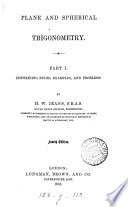 | Henry William Jeans - 1858 - 106 pages
...reduce arithmetical and algebraical expressions to logarithms. (25). (a) The logarithm of the product of any number of terms is equal to the sum of the logarithms of all the terms in the product: thus, if x=ab, then log. a;=log. a+log. b (6) The logarithm... | |
| |